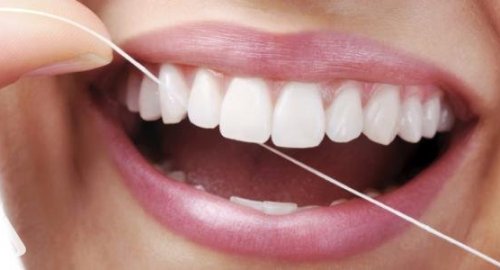
Regular trips to the dentist could help reduce chronic joint pain, study suggests

- 9-03-2023, 09:30
INA- sources
A new study suggests that regular trips to the dentist could help reduce chronic joint pain.
Dr. Vicky Yao, a researcher in computational biology and professor of computer science at Rice University, was monitoring blood samples from rheumatoid arthritis patients when she made an unexpected discovery. Heightened levels of bacteria associated with gum disease correlated with patients reporting flare-ups of arthritis symptoms.
Her hunch catalyzed a series of experiments conducted by Dana Orange, a rheumatologist and associate professor of clinical investigation at Rockefeller University, and Bob Darnell, a professor and attending physician at Rockefeller University and the Howard Hughes Medical Institute, which found that there was indeed a correlation between the bacteria associated with periodontal disease and heightened arthritis symptoms. Their study was recently published in Science Translational Medicine.
"What they found indicates that the presence of that bacteria in the bloodstream could be a trigger for flare-ups," Yao said. "There are other triggers, but this also seems like it could be one."
Rheumatoid arthritis is an auto-immune disease in which one's immune system attacks healthy cells in the body's joints, causing painful swelling and inflammation as result. Researchers theorize that the presence of the periodontal disease bacteria in the bloodstream causes a heightened immune response and, instead of simply attacking the bacteria, the body also attacks its own joint cells.
"Preventing these bacteria from being able to get in might, then, decrease the magnitude or the frequency of flare-ups," said Yao.
She said this information not only offers exciting new avenues for managing arthritis pain, but also, that the method of monitoring microbes as they relate to disease could be useful in finding out more about certain cancers.
"We know that certain microbes are causal for cancer, like HPV and cervical cancer; that's well-known," said Yao. "However, for the vast majority [of cancers], the relationship is not clear."
Yao thinks there is potential for using computational and machine learning techniques for analyzing the potential links between certain cancers and microbes.
"There could be microbes not just in your gut but also on the surface of tumors that could impact how they respond to treatment, for example," said Yao.
She hopes that additional research could lead to useful diagnosis and treatment applications.
Source:Houston Public Media
Al-Sudani launches construction of North Thermal Power Plant
- politics
- 12:03
PM Al-Sudani arrives in Nineveh
- politics
- 10:17
China Says It 'Firmly Opposes' US Military Aid To Taiwan
- International
- 07:36
US Central Command: We killed ISIS terrorist leader Abu Yusuf in Syria
- International
- 24/12/20
Liverpool compete with Real Madrid to sign Olympique Lyonnais star
- Security
- 24/12/19
ISC, ADX discuss Strengthening Economic Ties
- Economy
- 24/12/16
Iraq assumes presidency of Arab Investment Company’s Executive Board
- Economy
- 24/12/17












